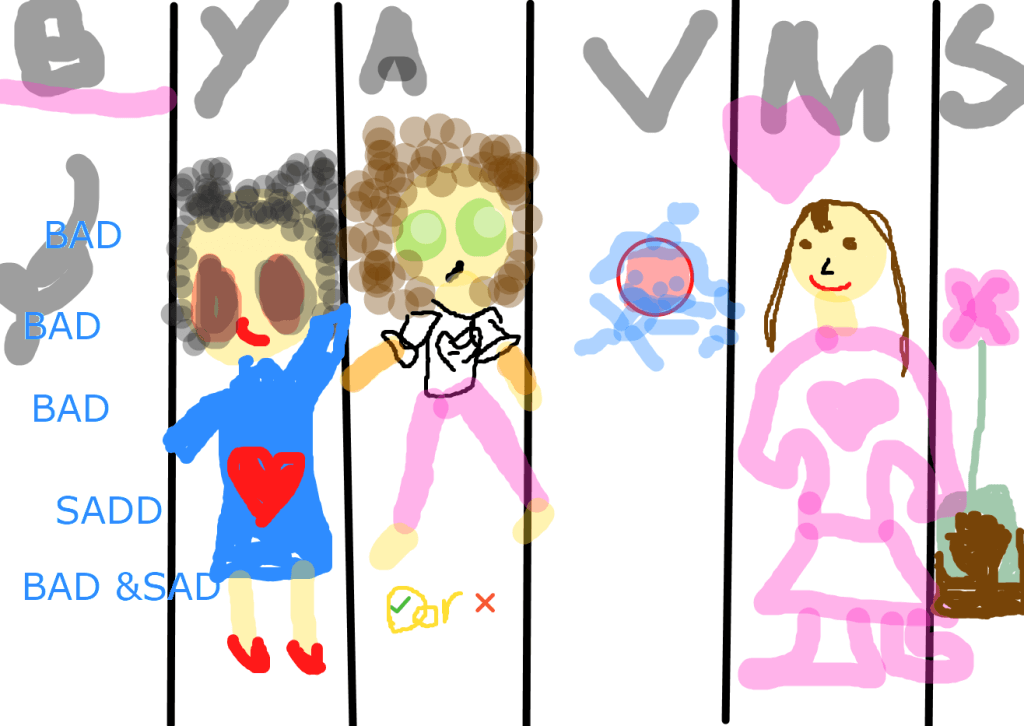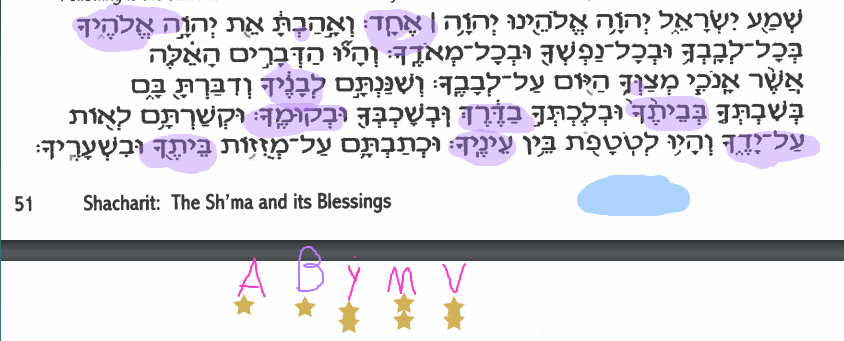You may remember the whiteboard check-in that one of our kiddos invented a few weeks ago. It was not just a one-time thing! Other kids have brought it back and it’s now part of our regular pool of check-in options. Here is this week’s:

I’m so glad we are building a community in Makom @ Home where we feel safe to share how we really feel, good or bad.
In Textsploration this week, Makom @ Home explored the Shema and V’ahavta. Shema means hear, so we started by thinking about what kinds of sounds we do and don’t like to hear:
- I do not like to hear people chewing.
- I like to hear people talking.
- I don’t like to hear the garbage truck.
- Police sirens cause it means something bad. 👎
- Kittens cause the meow is cute.
Then we watched a video by Rabbi Lizzi Heydemann that helped us explore more about how listening and loving could be ways to have a relationship with God. We compared relationships with God to relationship with people:
- 🙅🏾♀️ Not the same as having a relationship with a friend.
- How do you talk to God? God can’t talk back.
- Same: text says loving God. I love my family members.
- You can see your friend.
- God does not talk.
- You can’t play with God. Think of God as a kind spirit.
- I think God is everywhere
We thought about the Shema as a motto of the Jewish people. We wrote our own personal mottos too:
- Can’t stop. won’t stop!🚫🤚🏻
- Do not get too mad, do not get too mad.
- Never give up! It’s the persistence that matters. Even if you don’t get it right!
- I can make today a good day!
We noticed that the text of V’ahavta tells us to do a lot of things! We thought about why the text includes these particular instructions and what they mean.
What does it mean to “take to heart these instructions”?
- Remember.
- Put them in your heart. Keep them safe. Remember them forever
Why does the text tell us to “write them on the doorposts of your houses”? Why not somewhere else like the ceiling or next to your bed?
- We need to put it where everyone can see it.
Good point! So then why do we put the words inside a mezuzah on our doorposts? Why not out where we can see them?
- Keep them in boxes so your soul can reach out to them. The words are like a little soul inside.
Our learners are part of a long chain of commenters who ask and answer questions about our sacred texts and relate different texts to each other. I loved how this commentary connected back to our previous text, Elohai Neshama, about God putting our souls inside us.
After thinking through all of those instructions from Torah, we thought about how we evaluate and choose whether to follow instructions we get from different sources in our lives:
- I don’t like when people boss me around. My friend is nice, but she’s really bossy and she always tries to take control of me.
- If they’re saying things that aren’t true, I don’t listen.
- I do not like when parents give instructions but they are important.
- I follow instructions from videos for tutorials. Unless I do it differently or want to add something.
After exploring the text in depth, we also practiced our Ivrit (Hebrew) skills with the text of the Shema, highlighting and circling words with a particular letter, finding a word by sound and writing words ourselves:

These skills will come in handy as we prepare to put on a Purim play including some Hebrew lines from Megillat Esther. I look forward to hearing our kiddos’ commentary on that text!
